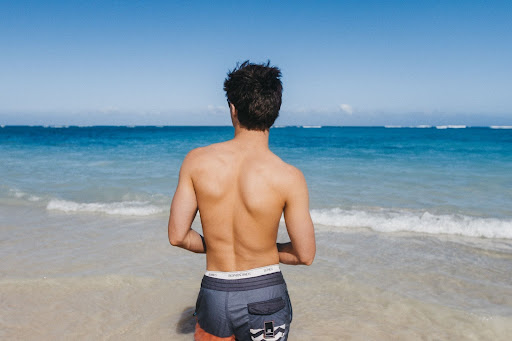
To some, there is nothing more relaxing than spending a day at the beach, working on the yard outside, or simply relaxing on the lawn with a cool beverage and a comfortable chair. While there are plenty of mental and physical health benefits to spending time in nature, especially on sunny days, you could be putting yourself at risk if you’re not properly protected.
Not only can sun exposure result in signs of premature aging, but it can also negatively impact your health. These issues include immune system suppression, damage to your eyes, and even skin cancer.
If you love soaking up the sun year-round, what can you do to protect yourself? By putting a few simple measures in place, you can reduce your risk of harm from sun exposure and continue to enjoy the great outdoors.
Why Sun Protection Is Important
You’ve probably heard about protecting yourself from the sun since you were a child. However, unless you know why it’s so important, you’re less likely to make it a priority.
While some sun exposure is necessary to produce Vitamin D, too much of the sun’s UV rays can lead to early aging. You might start to notice signs of aging, such as:
- Wrinkles;
- Sagging skin;
- Leathery-looking skin;
- Dryness.
More importantly, too much sun exposure can put you at a greater risk of developing skin cancer.
If you have darker skin, you may be able to be out in the sun for long periods without risking too much damage. However, people with fair skin can experience harm from the sun’s UV rays in as little as five to 10 minutes, depending on the time of day.
If you have a genetic predisposition to things like sun cancer or you have extremely fair or sensitive skin, it may be worth taking a look at your overall lifestyle so you can find ways to minimize sun exposure. This includes thinking about where to live, what kinds of outdoor activities you like to do, and your quality of life. You may find that moving to and living in another area — perhaps a place that has more rainy or cloudy days — helps to reduce your sun exposure, but allows you to continue doing your favorite outdoor activities.
How To Protect Your Skin
If moving isn’t an option, don’t worry. There are still plenty of ways you can protect your skin from sun damage.
The easiest way is something you’ve probably been doing your entire life – wearing sunscreen.
Choosing a sunscreen with a sun protection factor (SPF) of at least 30 will help to protect your skin from UV rays. Use a broad-spectrum sunscreen to protect from both UVA and UVB rays, and reapply it every two hours as long as you’re outside. When applying or reapplying, be sure to use enough sunscreen to fully cover any exposed areas of your body.
In addition to wearing sunscreen, try the following protective practices to keep your skin safe:
- Wearing protective clothing that covers your skin.
- Wearing a hat.
- Seeking shade whenever possible.
- Protecting your lips with an SPF lip balm.
It’s especially important to be cautious of the sun’s rays when you’re around sand, snow, or water. The surfaces of these substances can reflect UV rays, furthering your exposure to harmful radiation and resulting in more skin damage more quickly.
Additionally, make sure you’re staying hydrated when out in the sun. This won’t prevent you from getting a sunburn or protect you from the sun’s harmful rays, but it can help you stay cool
Make Your Eyes a Priority
Your skin isn’t the only part of your body that you need to protect from the sun. It’s just as important to take proper care of your eyes when spending time outdoors.
In fact, the sun could be taking a greater toll on your eye health and vision than you might realize. Some of the most common UV-related eye conditions include:
- Cataracts;
- Macular degeneration;
- Pterygium;
- Keratitis.
When your eyes are exposed to too much sunlight, it can also increase your risk of developing skin cancer on or around your eyelids. It’s an area that often gets ignored when it comes to sunscreen application (no one wants sunscreen in their eyes!), so it’s more likely to be exposed to harmful UV rays than other areas of your skin.
One of the easiest ways to keep your eyes protected is to invest in protective sunglasses. While any sunglasses are generally better than none, you should look for varieties that advertise 100% UV protection. Most glasses on the market today are designed to protect your eyes from the sun, and with so many different kinds of sunglasses to choose from, you can be selective about finding a pair to fit your needs and your style.
No matter where you live or how much time you spend outdoors, protecting yourself from the dangers of sun exposure is crucial. You don’t have to stop enjoying the outdoor activities you love, even if you live in a sunny environment. However, keeping yourself safe should be a top priority, so you can enjoy your time, preserve your health, and appreciate the world for years to come.
